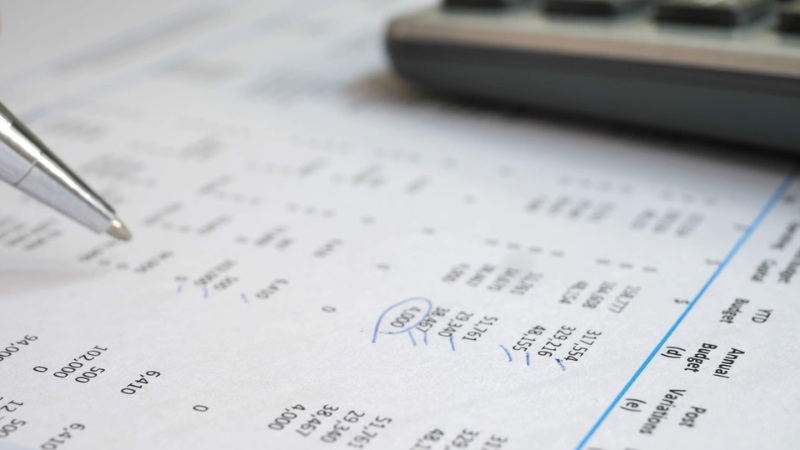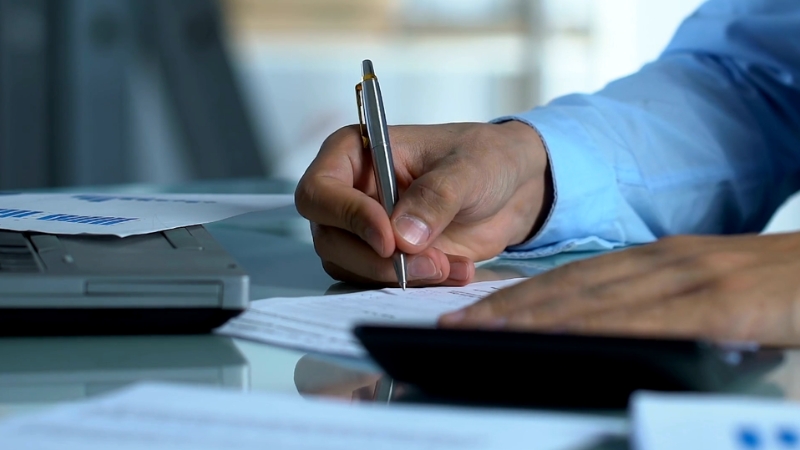The key difference between business debt and personal debt is who is legally responsible and how the debt impacts your finances, taxes, and credit.
- Personal debt (credit cards, personal loans, mortgages) is tied directly to you as an individual, affecting your personal credit, personal assets, and financial health.
- Business debt (lines of credit, equipment loans, SBA loans) is tied to your business entity (LLC, corporation), impacting your business credit, cash flow, and your company’s financial structure.
Knowing this distinction matters because it affects liability, risk to personal assets, tax treatment, credit reporting, and financial strategy for your life and your business.
What Is Personal Debt

Personal debt refers to any money you borrow for personal, family, or household purposes, not connected to a business. This includes:
- Credit cards are used for groceries, travel, and daily expenses.
- Personal loans for emergencies or large purchases.
- Mortgages and car loans.
- Student loans.
Debt Type
Common Uses
Credit Cards
Groceries, travel, household expenses
Personal Loans
Medical bills, consolidating other debts
Mortgages
Purchasing a home
Auto Loans
Buying a vehicle
Student Loans
Paying for education
Personal debt directly affects your personal credit report and credit score. Late payments, high credit utilization, or defaults will damage your credit profile, making it harder to secure future loans or favorable rates.
Additionally, personal debt is personally guaranteed, meaning you are legally responsible for repayment, and your personal assets can be at risk in case of non-payment.
Interest on personal debt is not tax-deductible in most cases, with some exceptions like mortgage interest and student loan interest under certain conditions.
Business Debt
View this post on Instagram
Business debt refers to money borrowed specifically for operating, maintaining, or expanding a business. It includes:
- Business credit cards.
- Business lines of credit.
- Equipment financing.
- SBA loans.
- Merchant cash advances.
Debt Type
Common Uses
Business Credit Cards
Operational expenses, travel, and office supplies
Business Lines of Credit
Managing cash flow, payroll, and inventory purchases
Equipment Financing
Buying machinery, computers, and vehicles for business
SBA Loans
Expansion, working capital, and real estate
Merchant Cash Advances
Short-term cash needs based on sales
Business debt is tied to your business entity, not you personally (assuming proper business structure and agreements). It impacts your business credit profile and your business’s ability to secure future financing.
However, many lenders require a personal guarantee from the business owner, especially for small businesses, which can blur the line between personal and business liability.
Interest paid on business debt is typically tax-deductible, lowering your taxable income and providing a financial advantage over personal debt. Business debt also helps build your company’s credit history, which can be valuable for future growth and investment.
Liability and Asset Risk

Personal Debt
You are personally liable for repayment. If you default:
- Creditors can pursue your personal assets (bank accounts, personal property).
- Your credit score will be damaged.
- Legal actions like wage garnishment may occur.
Business Debt
If your business is structured as an LLC or corporation:
- The business is liable for its debts, protecting your assets.
- Your credit is not affected if there is no personal guarantee and the business defaults.
- If you signed a personal guarantee, your assets can still be at risk.
Aspect
Personal Debt
Business Debt
Who is Liable
Individual borrower
Business entity (with exceptions)
Personal Asset Risk
High
Low (unless personally guaranteed)
Credit Impact
Personal credit score
Business credit score
Impact on Credit Reports

Personal Debt
Appears on personal credit reports and impacts your credit score based on:
- Payment history.
- Credit utilization.
- Account age.
Late payments or high balances can reduce your credit score, affecting your ability to obtain future personal financing.
Business Debt
Appears on business credit reports under the business’s EIN, helping build business credit history. Some business credit cards and loans may appear on personal credit reports if personally guaranteed, especially if the business is small or operates as a sole proprietorship.
Maintaining on-time payments on business debt helps your business qualify for:
- Larger credit lines.
- Better interest rates.
- Vendor financing.
Factor
Personal Debt
Business Debt
Reporting Entity
Personal credit bureaus
Business credit bureaus
Impacts Personal Score
Yes
No (unless personally guaranteed)
Builds Business Credit
No
Yes
Tax Treatment

Personal Debt
Generally, interest is not tax-deductible, with limited exceptions:
- Mortgage interest (up to certain limits).
- Student loan interest (subject to income caps).
Business Debt
Interest on business debt is tax-deductible as a business expense, reducing taxable income. This includes:
- Interest on business credit cards.
- Interest on business lines of credit and loans.
- Interest on equipment financing.
Factor
Personal Debt
Business Debt
Interest Deductibility
Rarely
Usually deductible
Impact on Taxable Income
No impact
Reduces taxable income
Purpose and Financial Strategy
@muofheba Your personal debts are not your companies debts #tiktokaccountant #taxcompliance #taxaccountant #southafricasmallbusines #taxmadeeasy #taxaccountant #accountingstudent #finance #accounting101 #financementorship #accountantvalue #tiktokfinance #bookkeeping #accountantvalue #accounting101 #bookkeeping #tiktokfinance #financementorship #accounting101 #financementorship ♬ original sound – Muofhe Business Accountants
Personal debt is typically used for consumption or personal investment (housing, education). It should be managed carefully, as high-interest personal debt (like credit cards) can quickly grow, creating financial strain.
Business debt is used to generate revenue, manage cash flow, and expand operations. When managed correctly, business debt can:
- Enable equipment purchases that increase productivity.
- Bridge cash flow gaps during slow periods.
- Fund expansion projects for growth.
Using business debt responsibly can leverage your business to grow faster without diluting ownership, provided cash flow can support repayment.
Example Scenario: Using Debt Correctly
Imagine you run a photography business:
- You use a personal credit card to pay for groceries and gas.
- You use a business line of credit to purchase a new camera and lighting equipment.
The personal debt will not generate income and is not tax-deductible, while the business debt funds equipment that will allow you to take more clients and generate income, and the interest you pay can reduce your business’s taxable income.
Potential Overlaps: Personal Guarantees
Many small business owners are required to personally guarantee business debt, which means:
- You will be personally liable if the business fails to repay.
- The lender can pursue your personal assets if the business defaults.
In these cases, business debt functions as a hybrid in terms of liability, and it’s essential to account for this risk when planning business borrowing.
Conclusion
Personal debt is tied to you individually, impacts your personal credit, and often cannot be used to reduce your taxable income. It should be managed carefully, focusing on paying off high-interest balances quickly.
Business debt is tied to your business entity, builds business credit, and offers tax-deductible interest, making it a strategic tool for growth and operational stability. However, personal guarantees can expose your personal assets if the business fails.
Using business debt responsibly allows you to leverage financing for growth while protecting your personal finances if structured correctly.
The clear separation of business and personal debt is critical for accounting, tax, and legal reasons, and co-mingling funds can create complications in audits and liability protection.

